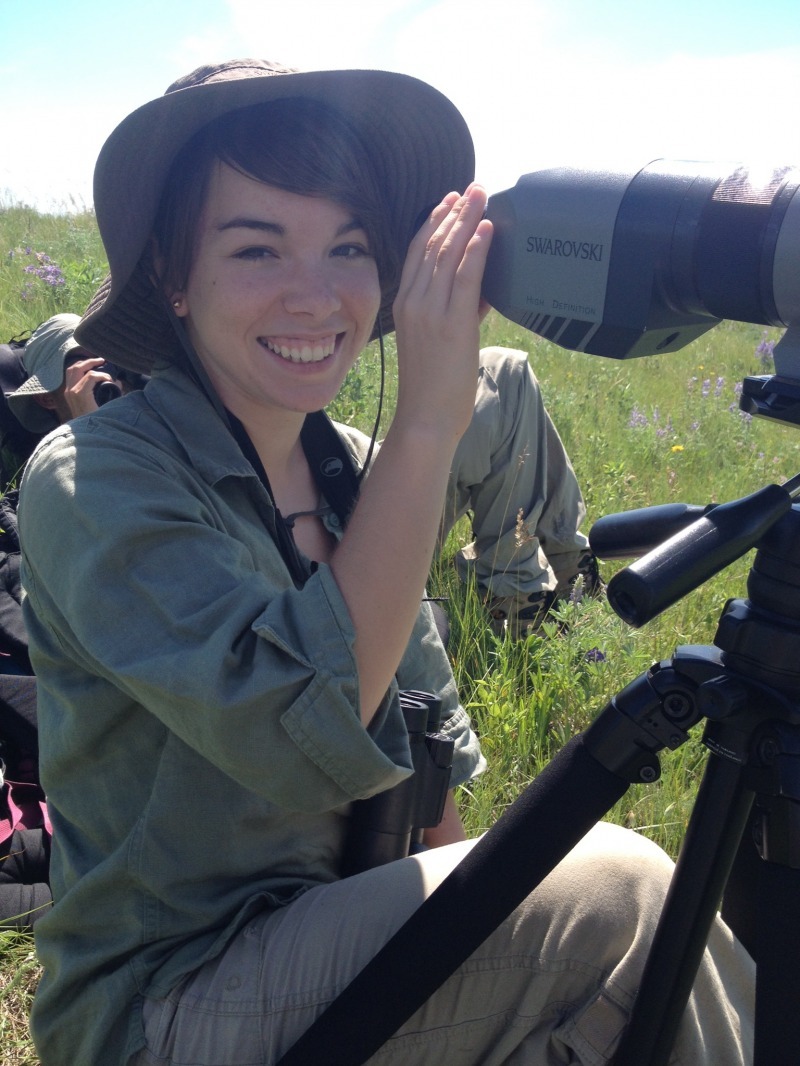Biology master's degree graduate mentors, inspires young women in science

Maegwin Bonar is a “wild” woman – a wildlife biologist, that is.
As one of few women in a field still very much dominated by men, the new master of science spring graduate has been a positive example for young women interested in biology and ecology, says her supervisor, Dr. Eric Vander Wal.
‘It’s possible and fun’
Ms. Bonar’s research on hooved mammals such as mule and white-tailed deer and caribou regularly took her out in the field to set up study sites.
“It’s a job unlike any other, that’s for sure,” said Ms. Bonar, who will attend convocation ceremonies at the St. John’s Arts and Culture Centre on Tuesday, May 29. “It’s not something that immediately comes to mind when you think of researchers in academia, but I’d like to think I’m showing other women that it’s possible and fun, and that they shouldn’t be afraid to be a woman in wildlife.”
While completing her master’s at Memorial, Ms. Bonar mentored female undergraduate students and participated in Let’s Talk Science, a program through which she also hopes to have inspired young girls to get involved in science, technology, engineering and mathematics (STEM).
“It’s nice to be able to pass on what I’ve learned so far,” she said. “I’ve had great examples to learn from, such as Christina Prokopenko, a fellow graduate student in my research lab. She’s a great inspiration in the wildlife community.”
Ms. Bonar is currently completing a PhD at Trent University. Notably, she was the only student put forward by the university for a Vanier Canada Graduate Scholarship from the Government of Canada. It recognizes leadership skills and a high standard of scholarly achievement in graduate studies.
If she receives one, Ms. Bonar will continue the winning streak of the Vander Wal lab: Ms. Prokopenko and Quinn Webber received the prestigious scholarship in 2017 and 2016, respectively.
“Writing the application made me feel very enthusiastic about the research I’m hopefully going to get to do here (at Trent),” she said. “Receiving it would certainly allow for a lot of exciting things to happen in my research.”